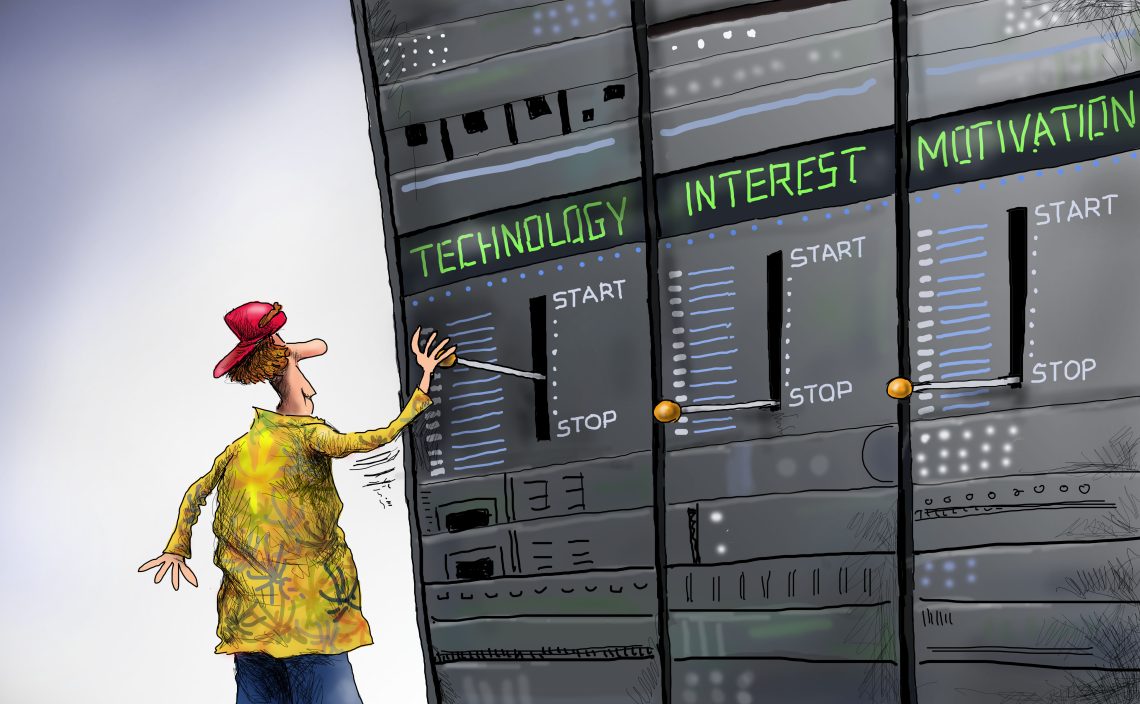Is economic inequality a bad thing?
Statistics is a wonderful tool to support hypotheses. Data can be selectively arranged, given “weights” or cleverly suppressed depending on a desirable outcome. Of late, the case of excessive and rising inequality has become a mantra in economics, media, academia and politics. It is backed up with statistics and presented as one of the major factors that threaten economic development, public welfare and social cohesion. The state is asked to curb inequality via money transfers with taxes.
Share of the population living in extreme poverty, by world region
If one feels there is a danger, one should, before panicking, analyze the situation. First, try to find out if the supposed threat is real. In this case, we should look at the causes of inequality and determine whether the situation indeed leads to detrimental consequences.
We need to acknowledge that inequality is quite a normal condition in human society. As a matter of fact, equality exists only before God and law. A healthy society cherishes and preserves the freedom of choice in pursuit of opportunities by its citizens. This freedom inevitably leads to inequality. Economic evenness will never exist in a free society. Only authoritarian systems can bring about a drab form of uniformity, as was demonstrated in the Soviet Union or East Germany.
In a normal economic development process, we see periods of increasing and decreasing inequality. If we look for causes, we find different ones in different regions of the world. In the United States, it is the emergence of IT monopolies. A surge in inequity is quite normal at the start of super-technologies, as legitimate patent protections render enormous market and pricing power to new technology leaders – in this case Google, Microsoft, Apple, Amazon, and the likes. With time, their positions will get a healthy challenge from competitors. It must also not be ignored that the IT boom is extremely beneficial to the global economy and has allowed new sectors, such as biotechnology, to emerge.
Another factor causing inequality, which works as strongly in the U.S. as in Europe and Japan, is the oversupply of money by central banks and policies of artificially low interest rates. One bad result of these is an enormous overvaluation of assets such as real estate, company participations, art and various other valuables. Such bubbles will eventually burst. A more lasting and troubling consequence of low interest rates is the erosion of pensioners’ money. The disastrous policies of central banks are mainly geared to alleviate the problem of government debt, although the official pretext is to trigger consumption and investment.
The real problem
In Europe, a tight maze of government regulations stiffens competition, creating protectionist oligarchies and, as a result, concentrations of wealth. This regulatory density combined with a “nanny” welfare state limits the freedom of choice and gives improper economic incentives. Taxation is certainly the wrong remedy here. More freedom and competition would be the natural choice. This approach does not preclude protection for the weakest in society – to the contrary, it assures a sustainable economic basis for it.
Statistics on inequality are misleading. More and more wealth is controlled by governments; they decide to whom it is allocated. Valuation of assets, especially in times of bubbles, is also arbitrary. Look also at how the assets of pension funds and sovereign wealth funds are treated in this system. Are we not dealing with a fog of “fake news” in this area of public debate?
Our real problem in large parts of the world is not inequality as such, but the shortage of opportunities caused by corrupt systems. This is why the resulting inequality is so biting. The best answer to corruption is not big government, but as little regulation as possible, to deny government officials the power to grant favors. Competition, accountability and wide freedom of choice combined with an efficient judicial system are the remedies. The validity of this approach has been demonstrated time and again, all over the world. A recent example was reforms in Georgia by President Mikheil Saakashvili (2008-2013).
Yet it is globalization, neoliberalism and free markets that are blamed for the increases in inequality. Let us note, though, that just as such protagonists of equality as the economist Thomas Piketty or former U.S. Vice President Joe Biden are lamenting its decline, a large share of the world’s population is being relieved from extreme poverty by the same system and can lead dignified lives.
It is crucial to raise the quality of life and well-being of as many people as possible. But this requires entrepreneurial spirit, the driver of real progress. Natural cycles of development alternately give rise to increases and decreases in inequality, but it is not a key indicator.
Inequality can serve as a great tool in populist politics, though. Taxing a few rich and distributing wealth to as many voters as possible can be a great ploy for power-hungry cynics, but such policies are corrupting Western democracy. The result can only be misery.
Read the original article here ->
Economic inequality bad thing
GIS is a global intelligence service providing independent, analytical, fact-based reports from a team of experts around the world. We also provide bespoke geopolitical consultancy services to businesses to support their international investment decisions. Our clients have access to expert insights in the fields of geopolitics, economics, defense, security and energy. Our experts provide scenarios on significant geopolitical events and trends. They use their knowledge to analyze the big picture and provide valuable recommendations of what is likely to happen next, in a way which informs long-term decision-making. Our experts play active roles in top universities, think-tanks, intelligence services, business and as government advisors. They have a unique blend of backgrounds and experience to deliver the narrative and understanding of global developments. They will help you develop a complete understanding of international affairs because they identify the key players, their motivations and what really matters in a changing world. Our experts examine the challenges and opportunities in economies old and new, identify emerging politicians and analyze and appraise new threats in a fast-changing world. They offer new ideas, fresh perspectives and rigorous study.

































